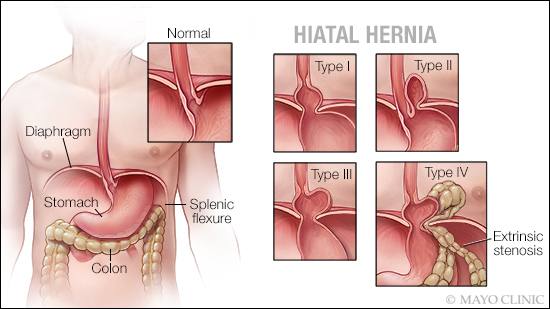Hiatal Hernia Surgery in Pakistan
Search and Compare the Best Clinics and Doctors at the Lowest Prices for Hiatal Hernia Surgery in Pakistan

Find the best clinics for Hiatal Hernia Surgery in Pakistan
No clinics available

- Home
- Pakistan
WHY US?
At Medijump, we're making medical easy. You can search, compare, discuss, and book your medical all in one place. We open the door to the best medical providers worldwide, saving you time and energy along the way, and it's all for FREE, no hidden fees, and no price markups guaranteed. So what are you waiting for?

Free

Best Price

Widest Selection

Risk-Free
What you need to know about Hiatal Hernia Surgery in Pakistan

A Hiatal Hernia is when the stomach extends up into the chest through an opening in the diaphragm. Hiatal hernia surgery is a surgical procedure to repair and return the stomach to its normal location and is normally performed when the symptoms are severe or it did not respond well to other treatments.
What does a Hiatal Hernia Surgery Procedure Involve?
Hiatal hernia surgery can be performed as a laparoscopic or open surgery; both are done under general anesthetic. With open surgery, your surgeon makes a single large incision in your abdomen and returns your stomach to where it belongs and wraps it around the lower part of the esophagus to create a tighter sphincter. With laparoscopic surgery, your surgeon will make 3 to 5 small incisions to insert surgical instruments and the laparoscope. The laparoscope transmits images of the internal organ to a monitor, guiding your surgeon through the surgery.
How Long Should I Stay in Pakistan for a Hiatal Hernia Surgery Procedure?
You may need to stay in the hospital for 1 to 3 days, but you should plan to stay in Pakistan a lot longer. Plan to stay for at least 7 to 14 days or when you get sign-off from your surgeon. During your stay, you will need to attend scheduled follow up appointments and also removal of the stitches.
What's the Recovery Time for Hiatal Hernia Surgery Procedures in Pakistan?
A full recovery may take about 10 to 12 weeks, but you can resume some of your daily routines and work within 6 to 8 weeks. If you have a physically demanding job, you probably need around 3 months before you can return. However, when the surgery is performed through a laparoscopic method, you may be able to recover in just a few weeks.
What sort of Aftercare is Required for Hiatal Hernia Surgery Procedures in Pakistan?
After a hiatal hernia surgery, you need to avoid baths, hot tubs, or pools. Instead, you can wash your body by taking a shower. You will have a restricted diet to prevent your stomach from extending, this diet involves eating four to six meals per day rather than 3 large meals, as well as avoiding food that causes gas. Your doctor will also give you coughing and breathing exercises to help strengthen your diaphragm.
What's the Success Rate of Hiatal Hernia Surgery Procedures in Pakistan?
A hiatal hernia surgery is effective and safe, with around 90% to 95% success rate. The mortality rate after the laparoscopic method is 0.57%, while the mortality rate after open surgery is about 1.0% - 2.7%. Just like any surgery, there are risks, complications, and that you need to be aware of, including bleeding, injury to internal organs, infection, diarrhea, abdominal bloating, and recurrence of the hernia.
Are there Alternatives to Hiatal Hernia Surgery Procedures in Pakistan?
Hiatal hernia surgery is effective for those that experience severe symptoms. If your symptoms are mild, you can opt for medications or home treatment.
What Should You Expect Before and After the Procedure?
Once you have fully recovered, the symptoms that you experience before the surgery, such as nausea and heartburn, should subside.
Whilst the information presented here has been accurately sourced and verified by a medical professional for its accuracy, it is still advised to consult with your doctor before pursuing a medical treatment at one of the listed medical providers
No Time?
Tell us what you're looking for and we'll reachout to the top clinics all at once
Enquire Now

Popular Procedures in Pakistan
Prices Start From $42

Prices Start From $4

Prices Start From $260

Prices Start From $520

Prices Start From $714

Recommended Medical Centers in Pakistan for procedures similar to Hiatal Hernia Surgery

- Interpreter services
- Translation service
- Religious facilities
- Medical records transfer
- Medical travel insurance
- Health insurance coordination
- TV in the room
- Safe in the room
- Phone in the room
- Private rooms for patients available

- Interpreter services
- Translation service
- Religious facilities
- Medical records transfer
- Medical travel insurance
- Health insurance coordination
- TV in the room
- Safe in the room
- Phone in the room
- Private rooms for patients available

- Interpreter services
- Translation service
- Religious facilities
- Medical records transfer
- Medical travel insurance
- Health insurance coordination
- TV in the room
- Safe in the room
- Phone in the room
- Private rooms for patients available

- Interpreter services
- Translation service
- Religious facilities
- Medical records transfer
- Medical travel insurance
- Health insurance coordination
- TV in the room
- Safe in the room
- Phone in the room
- Private rooms for patients available

- Interpreter services
- Translation service
- Religious facilities
- Medical records transfer
- Medical travel insurance
- Health insurance coordination
- TV in the room
- Safe in the room
- Phone in the room
- Private rooms for patients available

- Interpreter services
- Translation service
- Religious facilities
- Medical records transfer
- Medical travel insurance
- Health insurance coordination
- TV in the room
- Safe in the room
- Phone in the room
- Private rooms for patients available

- Interpreter services
- Translation service
- Religious facilities
- Medical records transfer
- Medical travel insurance
- Health insurance coordination
- TV in the room
- Safe in the room
- Phone in the room
- Private rooms for patients available

- Interpreter services
- Translation service
- Religious facilities
- Medical records transfer
- Medical travel insurance
- Health insurance coordination
- TV in the room
- Safe in the room
- Phone in the room
- Private rooms for patients available

- Interpreter services
- Translation service
- Religious facilities
- Medical records transfer
- Medical travel insurance
- Health insurance coordination
- TV in the room
- Safe in the room
- Phone in the room
- Private rooms for patients available

- Interpreter services
- Translation service
- Religious facilities
- Medical records transfer
- Medical travel insurance
- Health insurance coordination
- TV in the room
- Safe in the room
- Phone in the room
- Private rooms for patients available
Hiatal Hernia Surgery in and around Pakistan
Introduction
The Islamic Republic of Pakistan is a country located in South Asia and it is the fifth-most populous country of the world, with a population exceeding 207.8 million. Although the country has plenty of natural and historical riches, this country is off the radar for most tourists due to political instability. Those who are curious enough to visit the country will find that it is filled with beautiful, from Mughals and mountains to the mighty Karakoram.
A large number of ultra-modern medical centers are available, and they are equipped and facilitated with the most advanced medical technologies. Numerous doctors and surgeons at these medical centers are normally foreign qualified. Large numbers of patients from neighboring countries and the Middle East have traveled to Pakistan to undergo various medical procedures, mainly for organ transplants or fertility treatments.
Popular Cities and Regions in Pakistan
The capital city of Pakistan is Islamabad. This city was built as a planned city to replace Karachi as the country’s capital. Islamabad is known for its safety, high standards of living, and plenty of green spaces. Here, tourists can admire the symmetry of the Pakistan Monument, check out the Daman-e-Koh viewpoint, visit the Lok Virsa Museum, and stroll around the Faisal Mosque. Karachi, the original capital of the country, is a sprawling metropolis. Most visitors usually come to check out the Quaid Mausoleum and the Tuba Mosque. Another popular city for tourism in Lahore, which is filled with beautiful architecture and interesting museums. The most popular attractions in this city are the Badshahi Mosque, the Lahore Fort, the Sheesh Mahal, and the Delhi Gate.
Transport in Pakistan
The busiest airport in Pakistan is the Jinnah International Airport, which is located in Karachi. It serves both domestic and international flights to and from several cities in Europe, Asia, and the Middle East. Taking domestic flights can be a great way to travel around. The rail network is also extensive and comfortable. Taxis and Uber are also available.
Visas in Pakistan
Citizens of 5 countries, including Maldives, Nepal, Samoa, Tonga, and Trinidad and Tobago, can visit Pakistan without a visa. Several countries, such as Austria and the UAE, may obtain a visa on arrival if they possess ETA. Citizens of 15 countries, including Armenia and India, are eligible to apply for an online visa.
Weather in Pakistan
Summer (March – October) is hot and dry in the northern regions. However, July and August can be rainy, making the weather hot and humid. The temperatures can range from 9°C to 38°C. Winter (November – April) can be really severe and most cities will get frost. Also, the northern part of the country experiences heavy rainfall during this season. The average temperature ranges from 3°C to 25°C.
Additional Info
- Local Currency: The official currency is the Pakistani rupee (PKR). 1 USD will get you approx. 154.4 PKR.
- Money & Payments: ATMs are readily available. Pakistan is a cash-based society, and credit cards are only accepted in a few establishments. Tipping is not expected.
- Local Language: The official language is Urdu and English. Punjabi, Pashto, Sindhi, Saraiki, and Balochi are also spoken by a number of people.
- Local Culture and Religion: Islam is practiced by more than 90% of the population. Hinduism, Christianity, Ahmadis, Sikhism, and other religions are also practiced. Always avoid wearing body-revealing clothes in public places.
- Public holidays: Some of the most celebrated holidays are Holi, Pakistan Day, Eid ul-Fitr, and Eid ul-Azha.
Popular Searches
- Plastic Surgery in Thailand
- Dental Implants in Thailand
- Hair Transplant in Thailand
- Breast Augmentation Thailand
- Gastric Sleeve in Thailand
- Gender Reassignment Surgery in Thailand
- Laser Hair Removal in Bangkok
- Botox in Bangkok
- Dermatology in Bangkok
- Breast Augmentation in Bangkok
- Coolsculpting in Bangkok
- Veneers in Turkey
- Hair Transplant in Turkey
- Rhinoplasty in Turkey
- Stem Cell Therapy in Mexico
- Rhinoplasty in Mexico
- Liposuction in Mexico
- Coolsculpting in Tijuana
- Rhinoplasty in Korea
- Scar Removal in Korea
- Gastric Sleeve in Turkey
- Bone Marrow Transplant in India
- Invisalign in Malaysia
- Plastic Surgery in the Dominican Republic
- Tummy Tuck in the Dominican Republic
- Plastic and Cosmetic Surgery in Poland
- Rhinoplasty in Poland
- Hair Implant in Poland
- Dental Implants in Poland
- IVF in Turkey